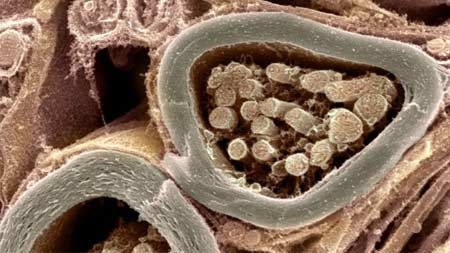We recently saw that MS, or multiple sclerosis, can be detected in children by exposing them to early MRI scans. A new study from University of Cambridge has generated hope for aged MS patients by suggesting that remyelination or regeneration of tissues in the central nervous system could be possible.
In direct proportion with the years adding on to our age, our body starts losing its ability to redevelop lost tissues. This is evident from the wrinkles our skin develops with age. In sync with this, MS patients exhaust the capacity to regenerate tissues in the CNS or brain. Thus, the regenerative processes gradually come to a halt, worsening the condition for patients.
“What we have shown in our study, carried out in collaboration with Dr Amy Wagers and colleagues at Harvard University, is that the age-associated decline in remyelination is reversible. We found that remyelination in old adult mice can be made to work as efficiently as it does in young adult mice,†explained Robin Franklin, Director of the MS Society’s Cambridge Centre for Myelin Repair at the University of Cambridge.
The study, which used mice as subjects, showed that remyelination or age-associated effects in MS patients can be reversed. This was done by introducing monocytes or inflammatory cells from young mice to old ones. The team which conducted this study conveys that the process works as effectively in aged subjects as in young ones.
This study by the University of Cambridge team, was recently published in the journal, Cell Stem Cell.

